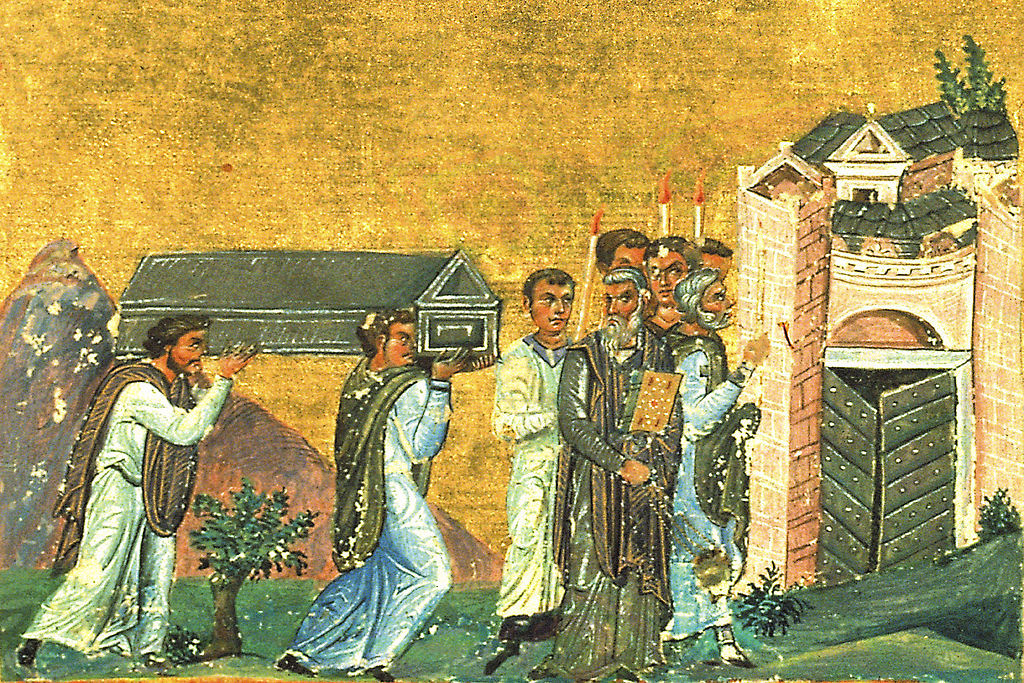Ignatius of Antioch is one of the earliest believers and one of the earliest martyrs in the Church. By the year 107 A.D., Ignatius served as bishop of Antioch (its ruins are located in modern-day Turkey.) Sentenced to death my a Roman emperor, Ignatius was taken prisoner and brought to Rome.
Both on the journey to Rome and while imprisoned, Ignatius continued to lend pastoral support to his church in Antioch. The letters he sent survived far longer than he did; the Church treasures these letters as not only historical documents, but as testimony of how the teachings of Christ were passed on by the earliest Christians.
The content of the letters addressed the hierarchy and structure of the Church as well as the content of the orthodox Christian faith. It was Bishop Ignatius who first used the term “catholic” to describe the whole Church. These letters connect us to the early Church and the unbroken, clear teaching of the Apostles which was given to them directly by Jesus Christ. They also reveal the holiness of a man of God who became himself a living letter of Christ. The shedding his blood in the witness of holy martyrdom was the culmination of a life lived conformed to Jesus Christ.
Once in Rome, Ignatius faced the fate of so many early Christians: the arena. The lions released, Ignatius died a a martyr’s death. In one of his pastoral letters, he wrote, “Permit me to imitate my suffering God… I am God’s wheat and I shall be ground by the teeth of beasts, that I may become the pure bread of Christ.” God answered Ignatius’ heartfelt and humble prayer.
Today, the Church celebrates this humble man. His example as both bishop and martyr remain for us, his brothers and sisters in Christ, nearly 2000 years removed.

